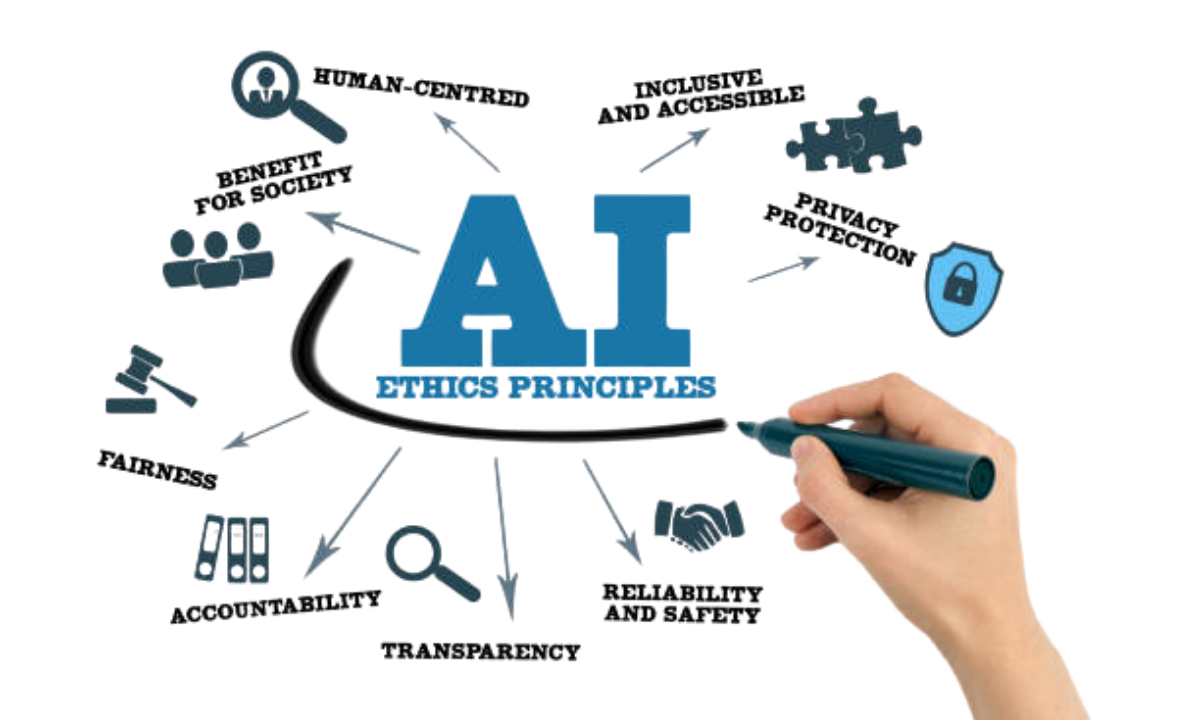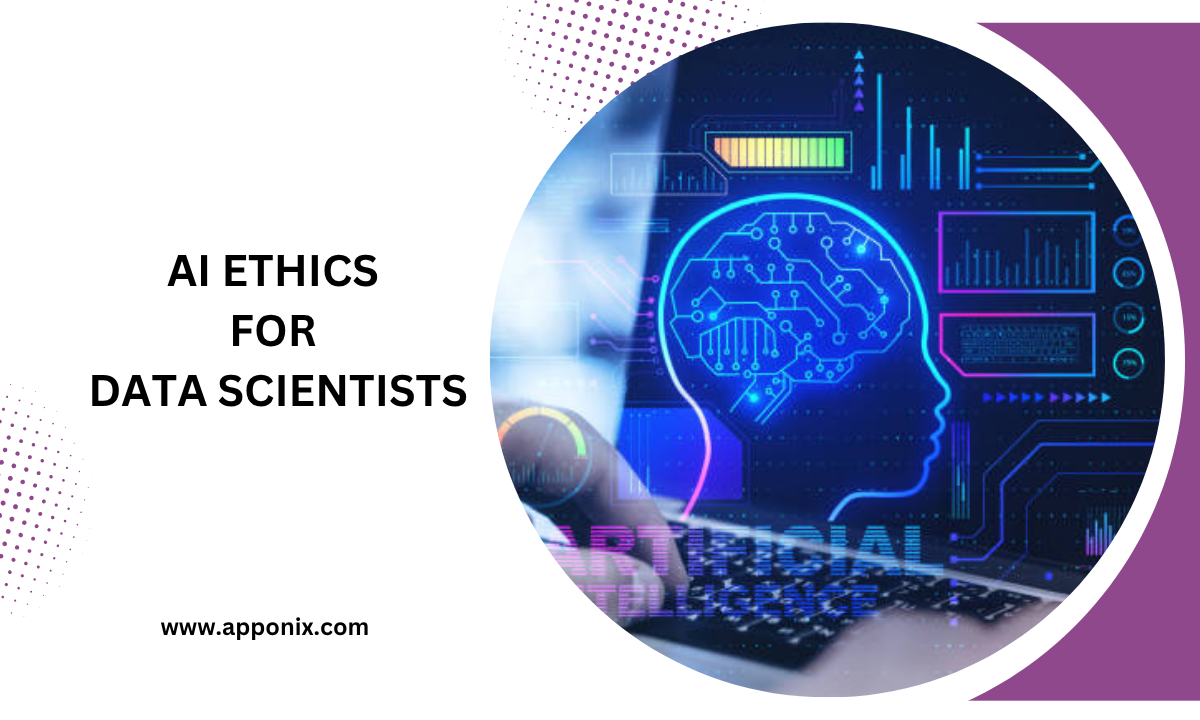Table of contents:
|
1. What Is AI Ethics? (AI ethics definition) |
|
2. Core AI Ethics Principles (AI ethics principles)
|
|
3. Key AI Ethics Issues You’ll Face (AI ethics issues)
|
|
4. Becoming an AI Ethics Specialist |
|
5. Training and Certification Paths (AI ethics course / AI ethics certification) |
|
6. Why Learning AI Ethics Matters |
|
7. Conclusion |
|
8. FAQs |
Since I started training future data scientists at Apponix, one topic has always been essential: AI ethics. In today’s AI-driven world, it is not enough to build strong models. We must also ensure that they are fair, clear, responsible, and align with human values.
Let me explain what AI ethics means. I will discuss the main principles. I will also discuss important issues you might encounter. Ultimately, I will outline how training in this area can have a profound impact on your career.
What Is AI Ethics? (AI ethics definition)
AI ethics is a set of moral principles and values. These guide how we design, develop, and use artificial intelligence systems. It ensures that AI systems act in ways that are beneficial, fair, and respectful of human rights and societal norms.
AI ethics helps data scientists, developers, and organizations avoid unintended harm. It also helps reduce bias and build trust in AI. Without ethical guardrails, powerful models can perpetuate inequality, invade privacy, or act in opaque ways.
Core AI Ethics Principles (AI ethics principles)

Through my years of training, I emphasize five pillars that any data scientist should internalize. Various code-of-ethics frameworks echo them (for example, the UNESCO recommendation and multiple industry models)
1. Fairness & Justice
AI systems should avoid discriminatory outcomes and ensure equitable treatment across gender, race, socioeconomic groups, etc.
2. Transparency & Explainability
Models and decisions must be understandable, or at least interpretable, so stakeholders can see how outcomes are derived.
3. Accountability & Responsibility
There must be clear ownership over decisions made by AI systems. If mistakes occur, someone should be answerable.
4. Privacy & Data Protection
Respect user privacy and follow data protection norms; avoid intrusive data collection or misuse of personal information.
5. Beneficence / Nonmaleficence
Aim to do good and avoid harm. AI systems should improve welfare, not worsen it.
Some frameworks also include autonomy, robustness, safety, and security as complementary principles.
When we teach AI ethics in Apponix classrooms, I often use real-world examples. These include biased hiring systems, credit scoring mistakes, and misuse of surveillance.
Key AI Ethics Issues You’ll Face (AI ethics issues)
Even with principles in mind, actual implementation is tricky. Here are common AI ethics issues that data scientists must navigate:
-
Bias & Discrimination
Training data often reflects social biases. If unchecked, a model may amplify them (e.g. gender or racial bias in hiring tools).
-
Lack of Explainability / Black-box models
Deep neural networks and complex ensembles may offer high accuracy but low interpretability, making it hard to understand decisions.
-
Data Privacy Violations
Using sensitive personal data without consent or anonymization can breach legal and ethical boundaries.
-
Model Drift & Unintended Consequences
Over time, models may behave unpredictably as data patterns shift. Without monitoring, harm can emerge.
-
Over-automation & Loss of Human Oversight
Relying too heavily on AI for decisions can erase human judgment, empathy, or moral reasoning.
-
Malicious Use & Dual Use
AI tools can be repurposed for manipulation, surveillance, disinformation, or cyberattacks.
Addressing these issues isn’t optional; it's central to responsible AI
Becoming an AI Ethics Specialist
As demand for AI increases, organizations want experts who can combine technical skills with moral judgment. This is the role of an AI ethics specialist. In that capacity, you might:
-
Draft and enforce ethics policies or AI codes of conduct
-
Audit models for fairness, bias, and privacy compliance
-
Serve as liaison between data science teams, legal departments, and stakeholders
-
Oversee ethical training and awareness within organizations
-
Provide risk assessments for new AI initiatives
Adding this specialization to your profile differentiates you from general data scientists and positions you for leadership roles.
Training and Certification Paths (AI ethics course / AI ethics certification)
To move toward specialization, formal training and certifications help. In our industry, these are valued signals:
-
The Certified AI Ethics and Governance Professional (CAEGP) is a short, intensive certification focusing on frameworks and risk management.
-
The IEEE CertifAIEd Professional Certification enables professionals to work with IEEE’s AI Ethics methodology.
-
Training programs like those from myTectra provide live and classroom training on ethics and responsible AI. Organizers sometimes hold these programs in Bangalore.
-
Online platforms like Coursera host multiple AI ethics courses, from introductory to specialization levels.
At Apponix, our “AI Ethics” modules include these certifications. They also provide hands-on case studies. This way, you can use what you learn right away.
Why Learning AI Ethics Matters
We often discuss data science course in Bangalore as a gateway to technical skills. But without ethics training, that pathway is incomplete. Here’s why local relevance matters:
-
Regulatory trends in India and globally are tightening around data privacy, algorithmic fairness, liability, and accountability.
-
Organizations in Bangalore's tech scene, like AI startups and research centres, emphasise ethics as a sign of trust.
-
As AI use grows in areas like health, finance, and governance, risks and scrutiny increase. This makes being aware of ethics a competitive advantage.
-
Integrating an AI ethics certification into your resume elevates your profile among employers looking for responsible AI talent.
At Apponix, a training institute in Bangalore, we offer courses. In every course, we include a section on ethics.
Conclusion
When you enter the world of data science, it is important to master algorithms, statistics, and modeling. However, that is not enough.
As a trainer at Apponix, a training institute in Bangalore, I think understanding AI ethics makes a good practitioner a responsible professional. You need to understand what AI ethics means. You should learn the principles and think about real issues. You might even want to become an AI ethics specialist.
Embracing ethics doesn’t slow innovation; it empowers sustainable innovation. It builds trust with end users, ensures compliance with evolving laws, and sets you apart in a crowded field. If you are training in Bangalore or asking about our AI ethics course, we ensure you are both skilled and ethical. We at Apponix are committed to producing data scientists who build powerful and principled AI.
FAQs
Q1. What’s the difference between AI ethics and responsible tech?
AI ethics looks at machine intelligence systems. 'Responsible tech' is a wider term that includes all digital tools. It is not just about AI. Responsible tech makes sure these tools respect ethics, privacy, and social good.
Q2. Can I take AI ethics courses even if I’m not technical?
Absolutely — many introductory AI ethics courses focus on concepts, case studies, and frameworks before diving into code-level concerns.
Q3. How long does it take to earn an AI ethics certification?
It depends: some, like CAEGP, run 2-day programmes; others (IEEE CertifAIEd, university specializations) may last several weeks to months.
Q4. Will learning AI ethics help me in a data science course in Bangalore?
Yes, it complements your technical training, making you more employable and responsible. Employers increasingly expect awareness of ethics along with core skills.
Q5. Is specialization as an AI ethics specialist financially rewarding?
Yes, companies are using AI more. As a result, jobs related to governance, compliance, fairness, and risk are becoming more important. These jobs are also paying better.




